
OR
Wording of Govt-Raut deal, leaders’ comments cause confusion
Published On: March 10, 2019 07:17 AM NPT
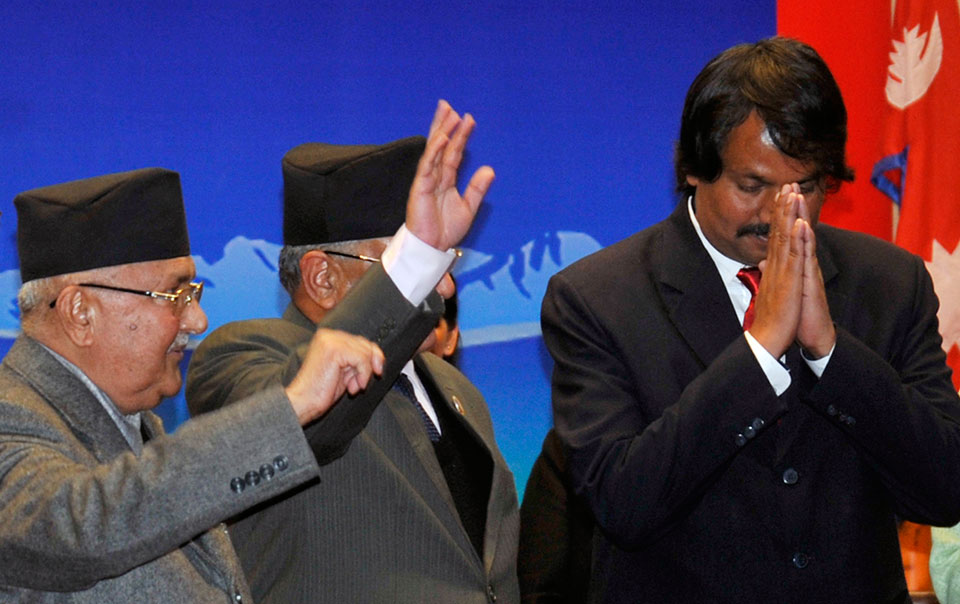
KATHMANDU, March 9: The agreement signed between the government and secessionist leader CK Raut on Friday as well as remarks made since by people from both sides have caused further confusion. The two sides are interpreting the wording of the agreement in their own ways.
Raut, who had been campaigning until recently for the secession of Madhes, reached an 11-point agreement with the government in which he renounced his secessionist agenda and agreed to join mainstream politics. The agreement was signed by Home Minister Ram Bahadur Thapa and Raut and exchanged amid a public function attended by Prime Minister KP Oli, ministers and other top party leaders.
Those working closely on behalf of Raut to hammer out the deal with the government have one interpretation for the phrase ‘people’s mandate’ in the wording of the agreement that reads “to settle the dissatisfaction existing in Tarai-Madhes and other parts of the country through a democratic system based on people’s mandate”. They say it means referendum.
“We have been raising the issue of referendum for long. They have agreed to resolve the dispute through a democratic process which is obviously a referendum,” said Jaykant Raut, elder brother to CK Raut, who negotiated the deal with the government. “It has been made clear at yesterday’s announcement function as well.”
However, some political leaders including those from the ruling Nepal Communist Party have strongly objected to the wording used in the agreement and demanded that the government clarify matters properly.
NCP General Secretary Bishnu Paudel, who was closely involved in the negotiations, said there was no need for confusion about the agreement. “There is no need to be confused. The agreement is written in clear Devanagari script and anyone can understand what ‘people’s mandate’ means,” he said adding, “We have not agreed to anything other than the people’s verdict.” It was pointless to interpret this to mean referendum, he insisted.
Pointing out that the very first point in the 11-point agreement clearly mentions that ‘federal democratic Nepal is an independent, sovereign and indivisible country’, Paudel urged one and all not to misread the agreement. He interprets ‘people’s mandate’ as a process to form federal, provincial and local governments through elections, or the election process to be adopted for choosing a new government.
“Bringing someone involved in a secessionist movement over to the side of an indivisible state is a big achievement. So, the agreement is a historic one with greater significance in the long run,” said Paudel.
While ruling party leaders close to Prime Minister Oli defended the agreement, other party leaders including Madhav Kumar Nepal, Bamdev Gautam, Narayankaji Sherstha and Bhim Rawal have expressed their discontent at different forums over both the process and the content of the agreement reached with CK Raut.
“Rautji has neither announced that he has withdrawn his secessionist remarks of the past nor has he welcomed the constitution,” said NCP leader Rawal at a function in Kathmandu. “Instead, an agreement has been signed between the government and the Alliance for Independent Madhes. What does this Independent Madhes mean?”
Rawal, a former home minister, urged Prime Minister Oli to also clarify matters such as Raut still writing on Facebook that both sides had agreed to go for a referendum to decide about an Independent Madhes. “Home Minister has signed the agreement on behalf of the government and this should be in the agenda for discussions at the party’s next meeting.”
You May Like This
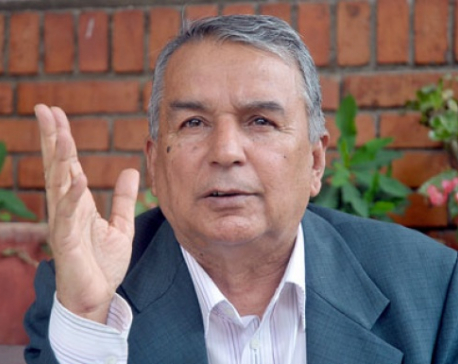
Agreement with CK Raut immature: Poudel
RUPANDEHI, March 12: Senior leader of the Nepali Congress, Ramchandra Poudel, has commented that the agreement government made recently with... Read More...
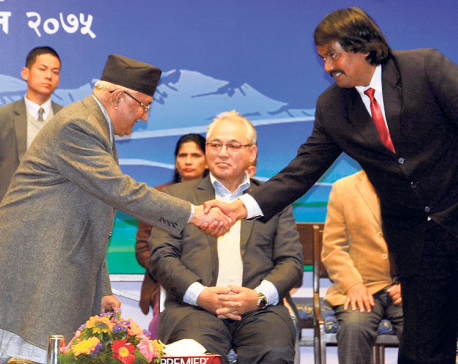
No agreement with Raut on referendum: Oli
KATHMANDU, March 12: Prime Minister K P Oli has clarified that the 11-point deal signed with CK Raut on Friday included... Read More...

Full text of the 11-pt deal between govt and CK Raut
11-pt deal between govt and CK Raut ... Read More...





Just In
- Nepalgunj ICP handed over to Nepal, to come into operation from May 8
- Nepal to gift two elephants to Qatar during Emir's state visit
- NUP Chair Shrestha: Resham Chaudhary, convicted in Tikapur murder case, ineligible for party membership
- Dr Ram Kantha Makaju Shrestha: A visionary leader transforming healthcare in Nepal
- Let us present practical projects, not 'wish list': PM Dahal
- President Paudel requests Emir of Qatar to initiate release of Bipin Joshi
- Emir of Qatar and President Paudel hold discussions at Sheetal Niwas
- Devi Khadka: The champion of sexual violence victims



_20240423174443.jpg)





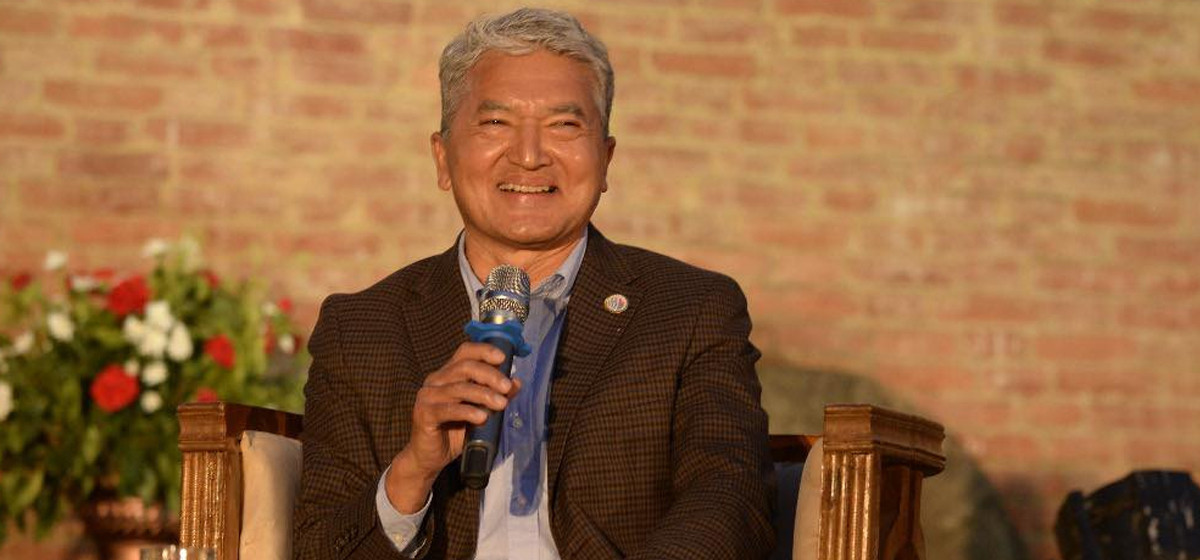
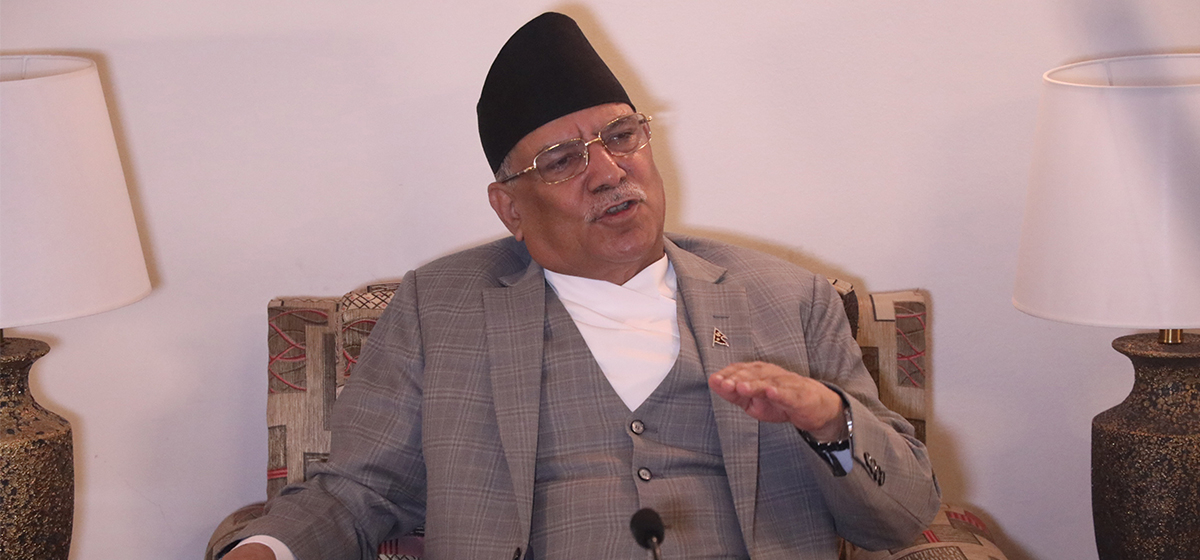

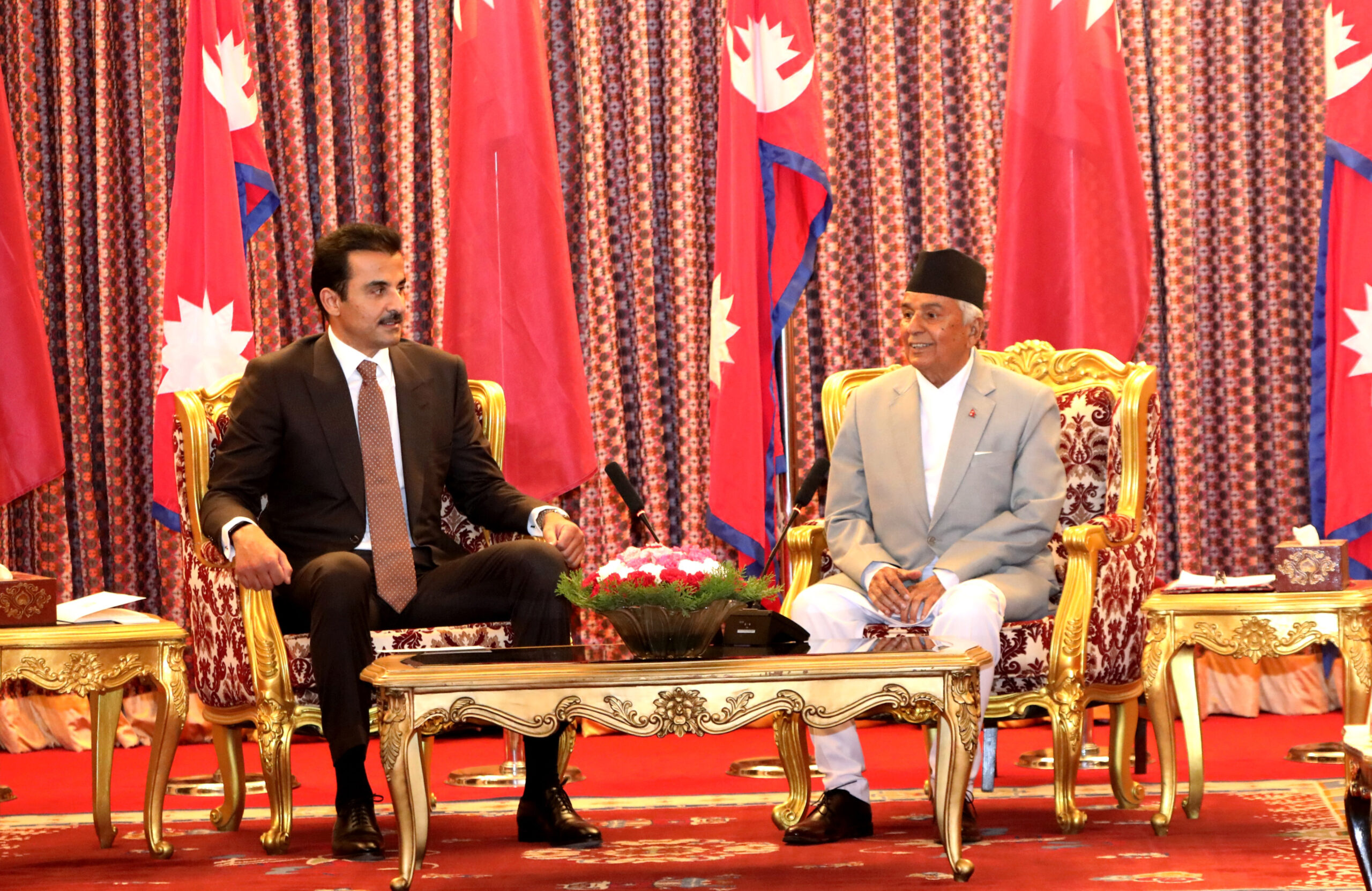
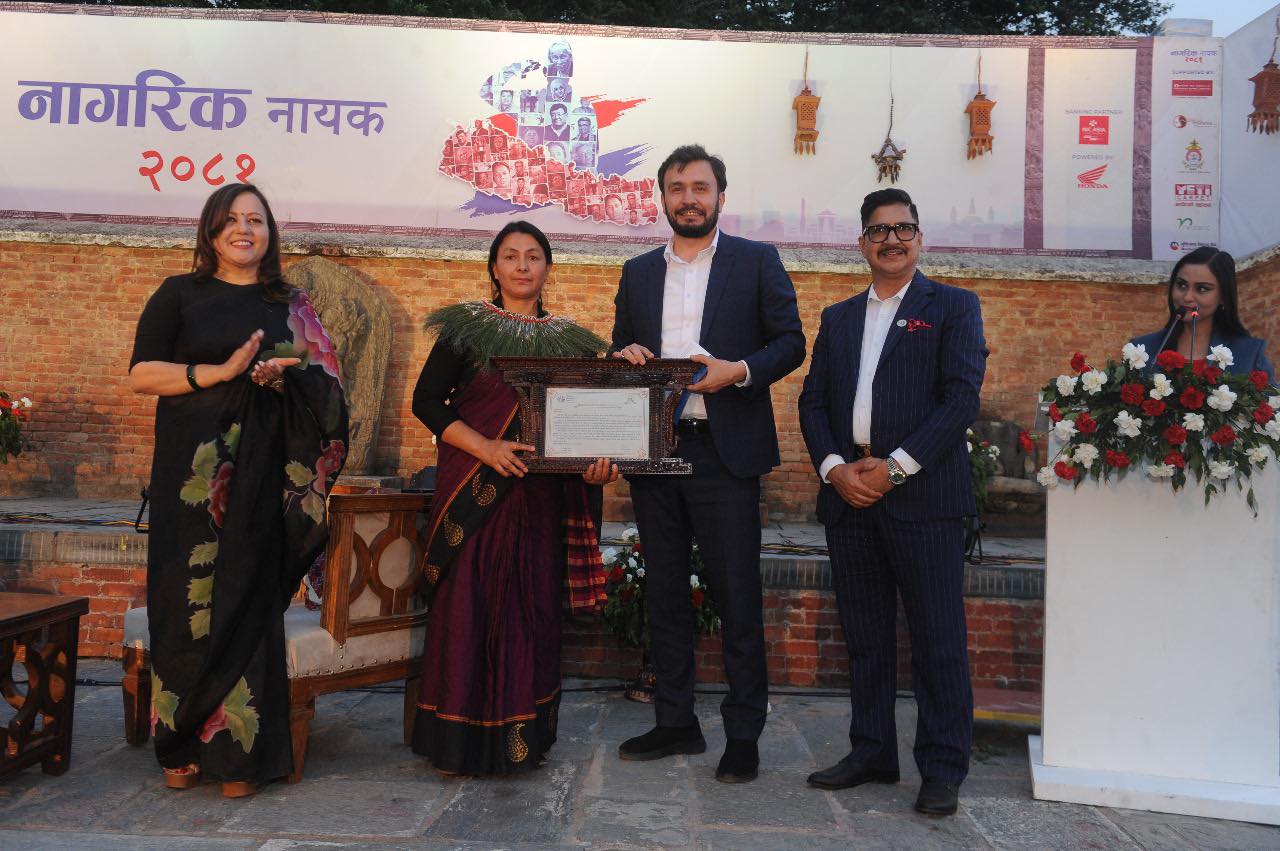
Leave A Comment